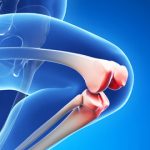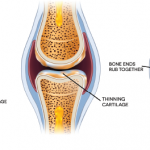Based on decades of data from dietary and other lifestyle interventions, doctors have long known that significant weight loss can be an effective treatment for people who are overweight and have knee osteoarthritis (OA). One meta-analysis showed that OA pain, function and stiffness scores improved by 2% for every 1% in lost weight.1 But the…





